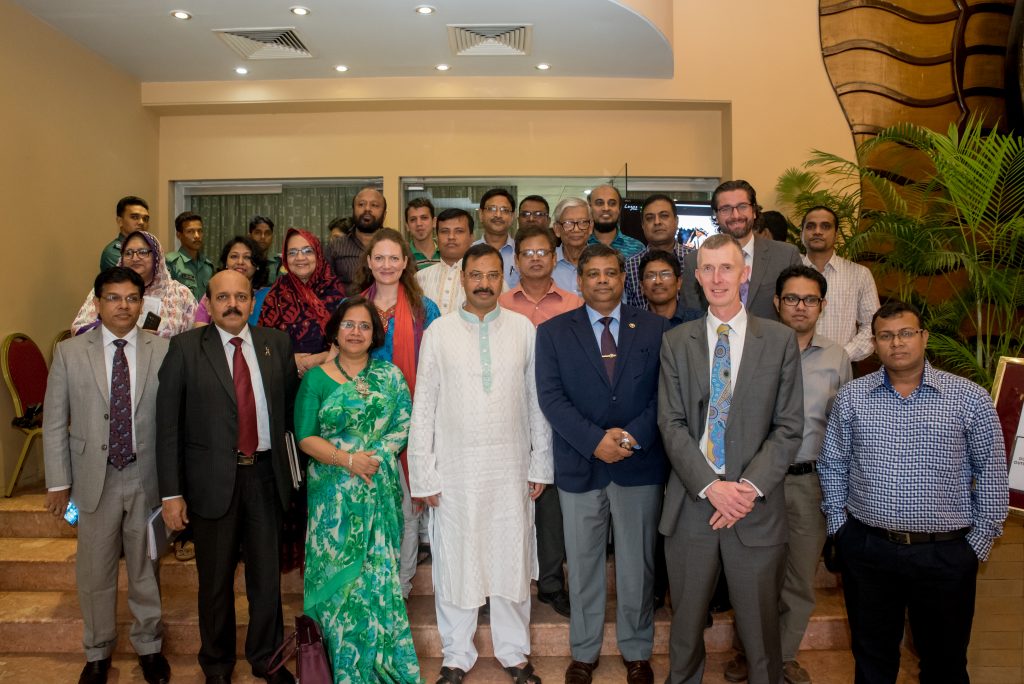
Field visit in Chittagong
By Tamim Billah
There are several factors that attracted me to the Safe and Sustainable Cities project. I am primarily moved by the goal and objectives of the research which are closely linked to my area of interest Climate Change and Migration. I think that the content of this research is very interesting as it aims to fill in knowledge gap in the areas of human security, migration and environmental interactions. The international collaborative partnership is a key factor underpinning the research that I think is valuable in generating new knowledge based on shared experiences. Another interesting thing is its planned efforts to identify factors driving migration and how the concept of network plays an important role in the whole process of migration. It would be interesting to see how this research would inform policy makers in shaping policies that would ensure migrants’ well being and human security in destination localities such as Chittagong. I have also found the data collection methods of this research particularly interesting, especially the photo voice approach. The inception workshop of the project also substantially attracted me. During the event, stakeholders from different sectors engaged in discussion on migration in the Chittagong city.
My involvement with the research project has been very enlightening so far. The inception workshop in particular was very interesting in terms of earning first hand contextual knowledge on migrants’ lives and livelihoods in Chittagong city including the challenges they face due to the lack or limited urban services available to them. It was interesting to learn about the factors that drive migrants to move to Chittagong, their overall poor living conditions in the slums and other hazardous places such as hill slopes. I also learned about stakeholders associated with the city government and other civil actors who can play critical role in ensuring human security and well being of migrants in Chittagong.
As a young researcher I do believe that this project will remarkably help develop my career in the areas of research based policy advocacy in many ways. Through my involvement with the project I will be able to acquire knowledge of conducting field based primary research that would include data collection, data analysis, and overall management of the research project. It will enhance my communications and networking skills. I anticipate that I will have opportunities to communicate with high government officials in Chittagong, experts from different sectors and other stakeholders associated with various organisations at city level. These activities will help me develop my communication skills and therefore learn from their knowledge and experiences.
